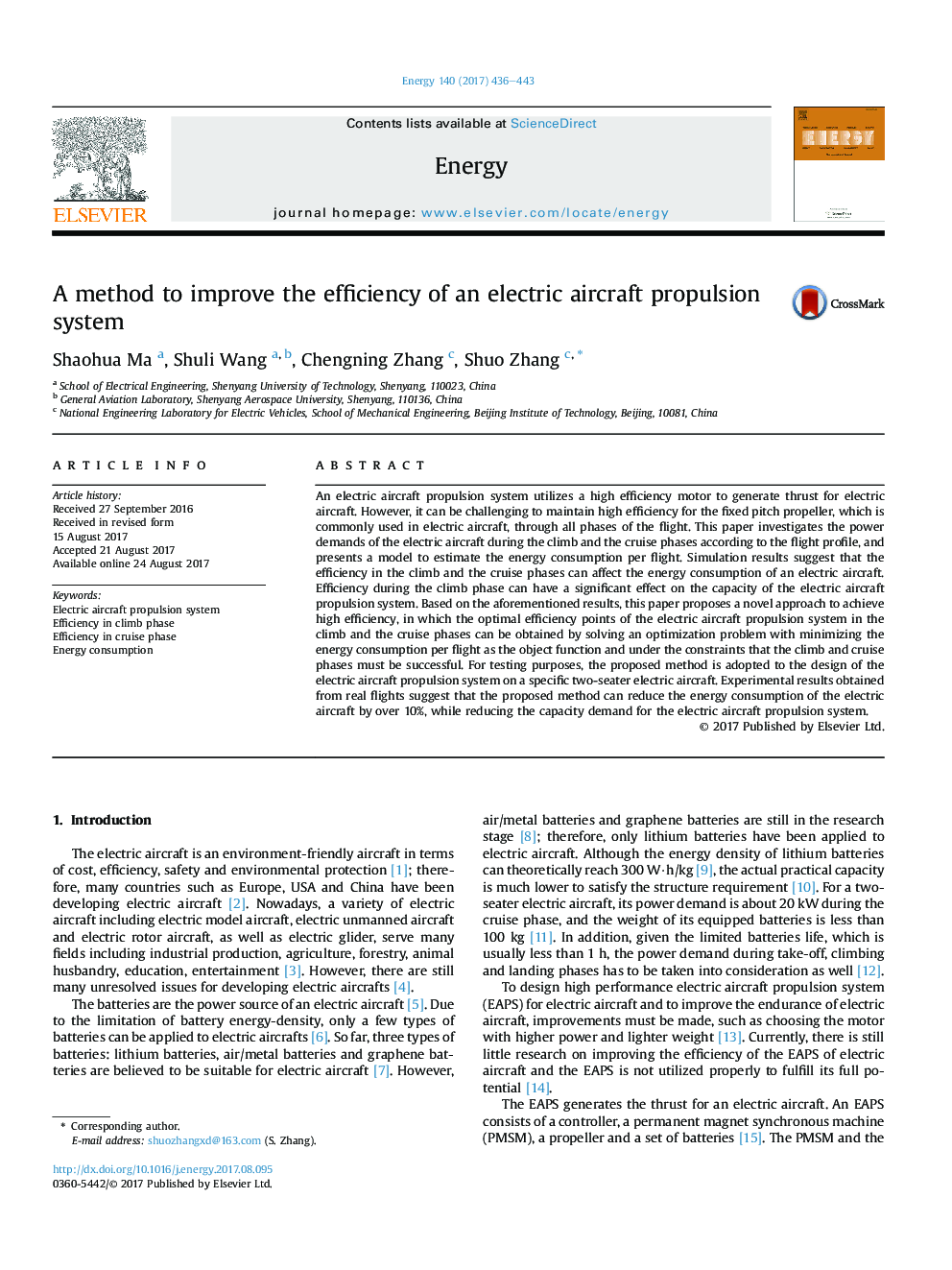| Article ID | Journal | Published Year | Pages | File Type |
|---|---|---|---|---|
| 5475423 | Energy | 2017 | 8 Pages |
Abstract
An electric aircraft propulsion system utilizes a high efficiency motor to generate thrust for electric aircraft. However, it can be challenging to maintain high efficiency for the fixed pitch propeller, which is commonly used in electric aircraft, through all phases of the flight. This paper investigates the power demands of the electric aircraft during the climb and the cruise phases according to the flight profile, and presents a model to estimate the energy consumption per flight. Simulation results suggest that the efficiency in the climb and the cruise phases can affect the energy consumption of an electric aircraft. Efficiency during the climb phase can have a significant effect on the capacity of the electric aircraft propulsion system. Based on the aforementioned results, this paper proposes a novel approach to achieve high efficiency, in which the optimal efficiency points of the electric aircraft propulsion system in the climb and the cruise phases can be obtained by solving an optimization problem with minimizing the energy consumption per flight as the object function and under the constraints that the climb and cruise phases must be successful. For testing purposes, the proposed method is adopted to the design of the electric aircraft propulsion system on a specific two-seater electric aircraft. Experimental results obtained from real flights suggest that the proposed method can reduce the energy consumption of the electric aircraft by over 10%, while reducing the capacity demand for the electric aircraft propulsion system.
Keywords
Related Topics
Physical Sciences and Engineering
Energy
Energy (General)
Authors
Shaohua Ma, Shuli Wang, Chengning Zhang, Shuo Zhang,
